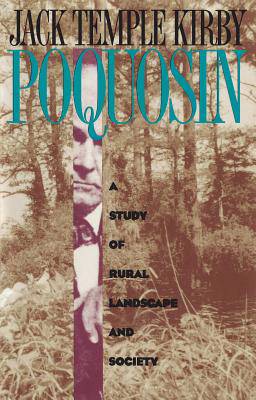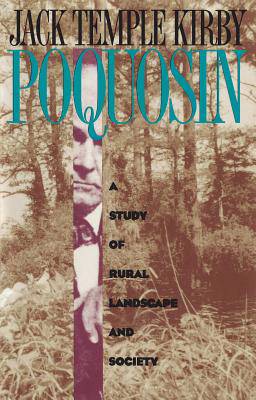
- Afhalen na 1 uur in een winkel met voorraad
- Gratis thuislevering in België vanaf € 30
- Ruim aanbod met 7 miljoen producten
- Afhalen na 1 uur in een winkel met voorraad
- Gratis thuislevering in België vanaf € 30
- Ruim aanbod met 7 miljoen producten
Zoeken
Omschrijving
Jack Temple Kirby charts the history of the low country between the James River in Virginia and Albemarle Sound in North Carolina. The Algonquian word for this country, which means 'swamp-on-a-hill, ' was transliterated as 'poquosin' by seventeenth-century English settlers. Interweaving social, political, economic, and military history with the story of the landscape, Kirby shows how Native American, African, and European peoples have adapted to and modified this Tidewater area in the nearly four hundred years since the arrival of Europeans. Kirby argues that European settlement created a lasting division of the region into two distinct zones often in conflict with each other: the cosmopolitan coastal area, open to markets, wealth, and power because of its proximity to navigable rivers and sounds, and a more isolated hinterland, whose people and their way of life were gradually--and grudgingly--subjugated by railroads, canals, and war. Kirby's wide-ranging analysis of the evolving interaction between humans and the landscape offers a unique perspective on familiar historical subjects, including slavery, Nat Turner's rebellion, the Civil War, agricultural modernization, and urbanization.
Specificaties
Betrokkenen
- Auteur(s):
- Uitgeverij:
Inhoud
- Aantal bladzijden:
- 320
- Taal:
- Engels
- Reeks:
Eigenschappen
- Productcode (EAN):
- 9780807845271
- Verschijningsdatum:
- 14/08/1995
- Uitvoering:
- Paperback
- Formaat:
- Trade paperback (VS)
- Afmetingen:
- 157 mm x 235 mm
- Gewicht:
- 517 g

Alleen bij Standaard Boekhandel
+ 115 punten op je klantenkaart van Standaard Boekhandel
Beoordelingen
We publiceren alleen reviews die voldoen aan de voorwaarden voor reviews. Bekijk onze voorwaarden voor reviews.











